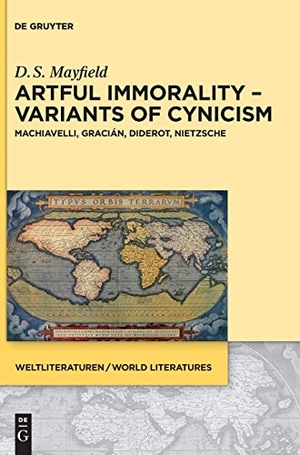Für statistische Zwecke und um bestmögliche Funktionalität zu bieten, speichert diese Website Cookies auf Ihrem Gerät. Das Speichern von Cookies kann in den Browser-Einstellungen deaktiviert werden. Wenn Sie die Website weiter nutzen, stimmen Sie der Verwendung von Cookies zu.
Cookie akzeptieren
Daniel Scott Mayfield
Artful Immorality ¿ Variants of Cynicism
- De Gruyter
- 2015
- Gebunden
- 492 Seiten
- ISBN 9783110438482
When a term is overused, it tends to fall out of fashion. Cynicism seems to be an exception. Its polytropic versatility apparently prevents any discontinuation of its application. Everyone knows that cynicism denotes that which is deemed deleterious at a given time; and every time will specify its toxicities - the apparent result being the term's non-specificity. This study describes the cynical stance and statement so as to render the term's use scholarly expedient. Close readings of textual sources commonly deemed cynical provide a legible starting point. A rhetorical analysis of aphorisms ascribed to the arch-Cynic Diogenes facilitates describing the design of cynical statements, as well as the characteristic features of the cynical stance. These patterns are identifiable in later texts
Mehr
Weniger
zzgl. Versand
in Kürze